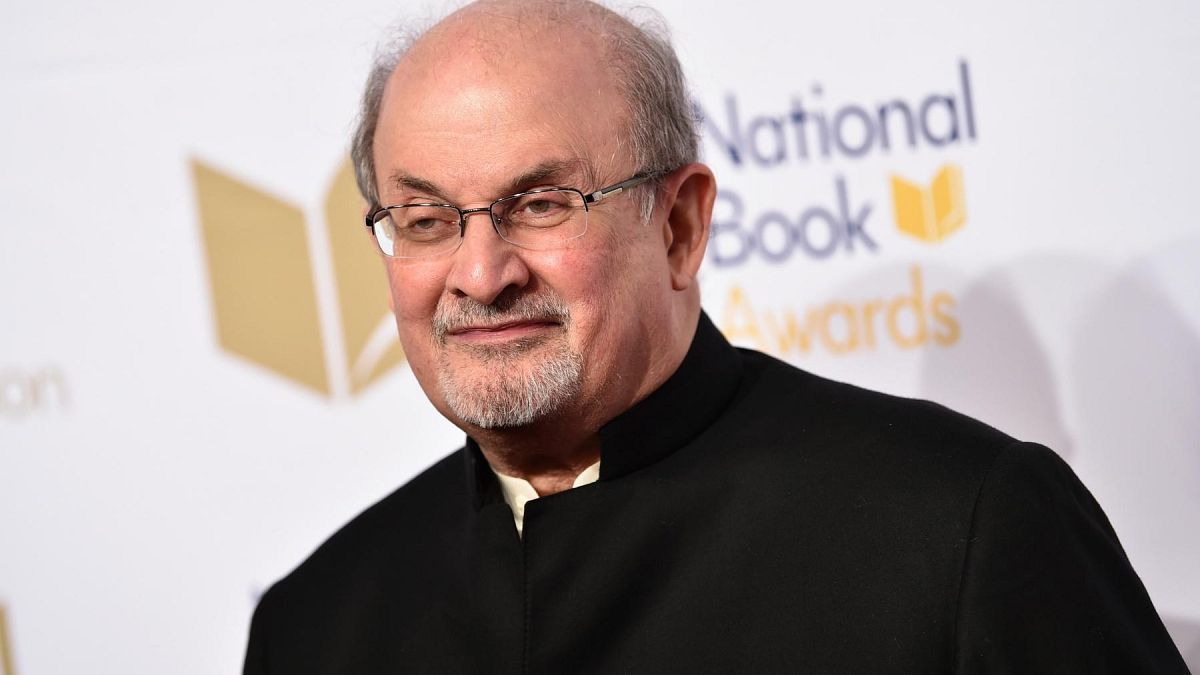Rushdie, 75, is said to be 'on the road to recovery' after the stabbing. The writer still has a bounty on his head, after a fatwa issued by Iranian clerics 30 years ago.
An Iranian government official denied that Tehran was involved in Friday's attack on author Salman Rushdie, though he justified the stabbing in remarks on Monday which represented Iran's first public comments on the subject.
The comments by Nasser Kanaani, the spokesman of Iran’s Foreign Ministry, come more than two days after the attack on Rushdie in New York. The writer has now been taken off a ventilator and is “on the road to recovery,” according to his agent.
“Regarding the attack against Salman Rushdie in America, we don’t consider anyone deserving reproach, blame or even condemnation, except for (Rushdie) himself and his supporters,” Kanaani said.
“In this regard, no one can blame the Islamic Republic of Iran," he added. “We believe that the insults made and the support he received was an insult against followers of all religions.”
Rushdie, 75, was stabbed Friday while attending an event in western New York. He suffered a damaged liver and severed nerves in an arm and an eye, his agent Andrew Wylie said. Rushdie was likely to lose the injured eye.
His assailant, 24-year-old Hadi Matar, has pleaded not guilty to charges stemming from the attack through his lawyer.
In his remarks on Monday, Iranian foreign ministry spokesperson Kanaani added that Iran did not "have any other information more than what the American media has reported.” He also implied that Rushdie brought the attack on himself.
“Salman Rushdie exposed himself to popular anger and fury through insulting the sacredness of Islam and crossing the red lines of over 1.5 billion Muslims and also red lines of followers of all divine religions,” Kanaani said.
Rushdie has for more than 30 years faced death threats for “The Satanic Verses.” Iran's late Supreme Leader Ayatollah Ruhollah Khomeini had issued a fatwa, or Islamic edict, demanding his death. A semi-official Iranian foundation had put up a bounty of over $3 million for the author, though it has yet to offer any comment on the attack.
Police in New York have offered no motive yet for the attack, though District Attorney Jason Schmidt alluded to the bounty on Rushdie in arguing against bail during a hearing Saturday.
“Even if this court were to set a million dollars bail, we stand a risk that bail could be met,” Schmidt said.
Matar was born in the United States to parents who emigrated from Yaroun in southern Lebanon near the Israeli border, according to the village's mayor. Flags of the Iranian-backed Shiite militant group Hezbollah, along with portraits of Hezbollah and Iranian leaders, hang across the village. Israel also has bombarded Hezbollah positions near there in the past.
